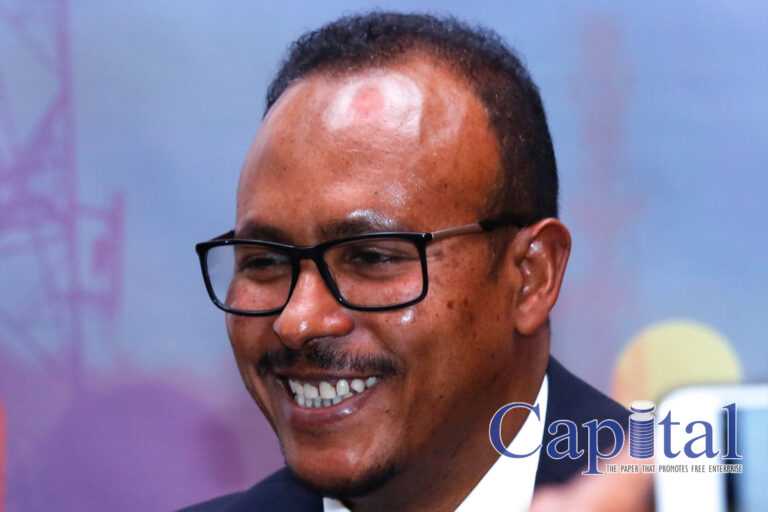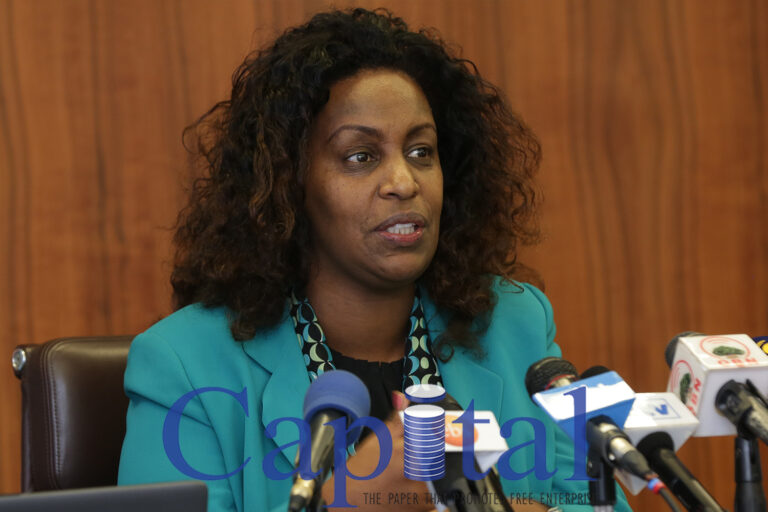Nega Wubeneh joined Alliance for a Green Revolution (AGRA) in 2009 as a policy Program Officer responsible for Market and Regional Trade Policies. He has 25 years of professional experience in Program Management, Monitoring and Evaluation, Quantitative Policy Analysis, and Policy Advocacy. Nega is currently Country Manager for Ethiopia of AGRA.
Nega served as a Senior Director and as member of the Senior Management team and previously Director of Input and Output Markets Program at the Ethiopian Agricultural Transformation Agency (ATA) on a secondment from AGRA. He managed eight systems programs (Markets, Cooperatives, Seeds, Soil Fertility, Household Irrigation, Mechanization, Research and Extension and Rural Finance) responsible for developing solutions for systemic problems in the agricultural sector and managed more than two-third of the Agricultural Transformation Agenda of the ATA. He led the design and implementation of a number of innovative solutions to tackle systemic bottlenecks in the agricultural system. A farm input credit program Nega has developed in Ethiopia has enabled over 5 million farmers have access to input credit. In 2018/19 farmers were able to buy $340 million worth of agricultural inputs through the input voucher system.
Prior to joining AGRA he was Agricultural Research Officer at the CGIAR Science Council Secretariat at United Nations Food and Agriculture Organization (FAO), working on ex-post impact assessment and monitoring and evaluation of international agricultural research. He also served as a Senior Research Assistant in the Livestock Policy Analysis Program of the International Livestock Research Institute (ILRI) and as Junior and Senior Statistician in the Ministry Industry and Addis Ababa Region Industry and Trade Bureau. Nega talked to Capital about the alloiances works on food security. Excerpts;
Capital: You said the COVID-19 pandemic has exacerbated underlying challenges in food systems globally and especially in sub-Saharan Africa. Can you elaborate this?
Nega Wubeneh: Even before the COVID 19 pandemic hundreds of millions of people in Sub-Saharan Africa were facing food insecurity. However the COVID pandemic has exacerbated the situation. The restrictions on movements to contain the spread of the pandemic and the disruption of demand due to the closure of some business such as hotels and restaurants and loss of export demand, some farmers were not able to sell their produce. The shortage of transport vehicles and laborers for loading and unloading meant that fertilizer, seed and other key agricultural inputs could not be distributed in time. The shortage of transport vehicles and labor also led to hikes in the cost of transport and logistics, which were passed on to consumer in terms of higher prices. The closure of businesses, particularly in the service sector, forced many wage workers to lose their source of livelihood and hence access to food. In Ethiopia, businesses in the flower and poultry industry had been forced to dump their produce and furlough their workers because of lack of demand.
In the early stages of the pandemic panic buying of commodities has also contributed to prices hikes in some urban centres in the continent. Some countries have also moved to restrict export of key agricultural commodities to protect thie own consumers from price hikes impacting importing countries. All these series of issues have exposed the underlying weakness of the agricultural and food system and exacerbated the food insecurity problem.
Capital: Farmers in Africa were facing surges of droughts and floods and a stunning attack of desert locusts-all linked to climate change, How are you planning to help these farmers?
Nega: AGRA places economic and environmental sustainability at the heart of its interventions. AGRA realizes that agricultural transformation, as narrowly defined by increased production and productivity, should not be achieved at the expense of destroying the habitat. Hence all AGRA interventions are internally evaluated for their potential social and environmental impacts. AGRA has been promoting environmentally sustainable agricultural practices such as integrated soil fertility management practices and technologies that enable farmers to mitigate the impacts of climate change such as moisture stress by promoting locally bred and drought tolerant seed varieties. It has also been supporting smallholder farmers to be integrated into profitable value chains so that they increase their profitability and build assets improving their chances of withstanding future shocks. In Ethiopia AGRA, in partnership with the Ministry of Agriculture and IFAD has supported the development of a conservation agriculture manual that is going to mainstreamed in the extension training curriculum.
AGRA, in its strategy new 2030 that is being developed has put strategies that enable the agricultural system to absorb shocks such as climate change, diseases, pests and adapt and build transformative capacity.
Capital: A recent report by Oxfam listed Ethiopia as among the ten most extreme hunger hotspots, what are the outcomes if this warning is neglected?
Nega: Ethiopia is one of the few African countries that have made significant progress in the process of agricultural transformation. The Government of Ethiopia has prioritized the sector and recognizes that agriculture is the major driver of economic growth and industrialization. Ethiopia is one of a handful of countries that has consistently met or exceeded the CAADP target for budget allocation to the sector. It has also trained and deployed over 65,000 public extension workers to help farmers adopt productivity enhancing inputs and improved agronomic practices. As a result, smallholder productivity has shown remarkable improvement. Farmers are able to withstand shocks much better than twenty years ago.
Yet, despite the impressive progress that has been made and the achievement of food security at the national level, there are still communities, particularly in the lowland pastoralist areas , that face persistent food insecurity. Their plight has increasingly worsened with climate change as more frequent droughts have affected the availability of water and grazing land. When disasters such as the flooding, locust invasion happen they exacerbate the already precarious food security situation for these vulnerable communities.
The government of Ethiopia, in addition to the programs designed to grow the agriculture sector, has a safety net program that is aimed at protecting the vulnerable segments of the population including communities that live in marginal agricultural areas. Learning from the experience of the 1980s recurrent droughts and famines, Ethiopia has built a robust early warning and disaster and emergency management system including an emergency food reserve to deliver aid to communities before they are displaced from their villages. So, there are already mechanisms in place to act when and if this kind of emergency arises. Indeed, it will be catastrophic if the government does not respond but experience shows that it is very unlikely that the warning remains unheeded and the authorities will respond in time to address the challenges.
Capital: What is Ethiopia’s food security outlook in the context of the COVID-19 pandemic?
Nega: Several studies have looked at how COVID 19 has impacted the Ethiopian food system. The health-related impacts of the disease on the rural community and ensuing disruption of farming activities has been minimal. COVID 19 has impacted the sector largely through disruption of the transport and logistics system that delivers inputs and transports the produce to the market. The shortage of transport vehicles and labor has to some extent affected the timely delivery agricultural inputs and produce and increased the transport costs. In addition, demand side disruptions were observed for some products that are used by restaurants, hotels and the export destinations. There were reported incidents of price hikes triggered by panic buying at the start of the pandemic. Other than these, the agricultural and food systems have been functioning relatively well and markets had remained open. The export performance of the country for the last fiscal year shows that the exports, although below expected, have rebounded. Moreover, the rainfall in 2019 and 2020 cropping season has been relatively good.
The government of Ethiopia is also implementing a large-scale wheat and rice production program to reduce the country’s dependence on imports and to blunt the potential impact of COVID 19. One of the curious things that happens when global food crisis of this nature occurs is that countries start to look inward and impose restrictions on exports of key agricultural products. This puts the global food system and the importing countries one such restriction away from food insecurity.
The agriculture the sector also faces some headwinds from the unprecedented level of locust invasion and flooding in some parts of the country. We are also observing some untimely rainfall which could adversely affect the yields in the current harvest season. So, the overall food security situation this year will be determined largely by how the harvests and ongoing flooding and locust invasion play out during the reminder of the 2020 harvest season.
Until now the impact of COVID has been largely an urban phenomenon. We know that the average age of farmers in Ethiopia is probably in the sixties. Considering the increased vulnerability of older people for COVID 19 infections and the weakness of the healthcare system in the rural areas, the government should make a concerted effort to prevent the spread of COVID 19 into rural areas. Otherwise this may adversely impact the agricultural production by disrupting the labor availability.
Capital: What would it take to build resilience and security in food systems in a post-COVID Ethiopia?
Nega: COVID 19 is not going to be the last shock to the food system. There will be other forms of shocks such as droughts, floods, pests, diseases, social unrest and probably some lingering effects of COVID 19. Responses to rebuild and improve resilience in the food system would require, first of all, a clear understanding of how the pandemic has impacted the food system and developing a recovery plan based on evidence. Ethiopia should continue to pursue an inclusive agricultural transformation that not only aims at increasing productivity and production, but do so by the promoting environmentally sustainable technologies and management practices. The sector must create livelihood for women, the youth and smallholder farmers in the agricultural value chains and off-farm employment opportunities. It has also to strive to produce nutritious food to protect the wellbeing of the population. Post COVID, it also would require rethinking the agricultural inputs and outputs markets and logistics system to minimize future disruptions.
Capital: Armed with high-yield commercial seeds, fertilizers and pesticides, AGRA eventually set the goal to double productivity and incomes by 2020 for 30 million small-scale farming households while reducing food insecurity by half in 20 countries. But according to a new report from a broad-based civil society alliance, based partly on new background paper, AGRA is “failing on its own terms.” What is your comment?
Nega: AGRA set as its five year target (ending 2021) to directly reach 9 million farmers, and indirectly reach another 21 million. Agricultural productivity and production in countries where AGRA operates, while not entirely attributable to AGRA’s efforts, have shown significant improvements. Countries such as Tanzania, Mozambique, Ghana and Mali where AGRA has started the programs much earlier have made remarkable progress in transforming the agriculture sector. AGRA has also been rebuilding the largely defunct extension system; putting in place sustainable marketing and distribution systems for technologies and inputs; and linking smallholder farmers to sustainable markets. In common with African government targets, AGRA wishes to see a doubling of yields and incomes, and is concerned that progress on this lags across the continent. All agricultural development partners are urged to consider how advances can be achieved as quickly and sustainably as possible.
In Ethiopia, with only two seasons of interventions AGRA’s programs has so far reached over a million farmers promoting new crop varieties, improved cop management practices, promoting post-harvest technologies, improving the input credit delivery system and linking farmers to private sector agro-processors.
The article mentioned unfortunately does not have accurate evidence on AGRA’s activities and the results so far achieved. Yes, there is indeed a lot poverty, food insecurity and malnutrition in the continent. Unfortunately, AGRA does not have enough resources to be in every part of the continent, and should be seen as a catalyst for change and development in support of national governments and other partners.
AGRA has been using its convening power to expand the impact in countries where it has no presence by advocating at the continental level for governments to realize the role of the agricultural sector in tackling poverty and food security and engendering economic growth; to allocate the required resources to the sector out of their budgets; and put in place appropriate policies, strategies, flagship programs and create enabling environment for smallholder farmers and SMEs.







